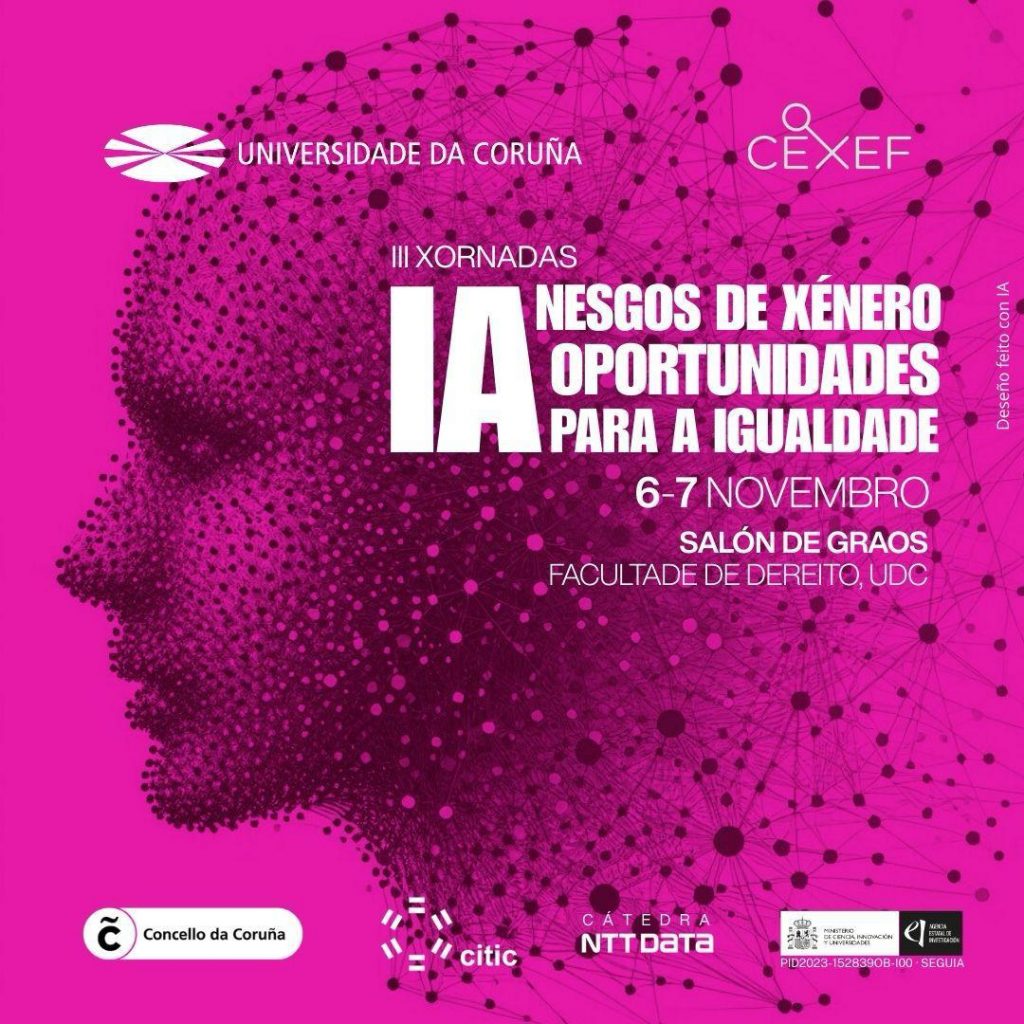
The University of A Coruña to host the III Conference on Gender Biases and Opportunities for Equality in the Age of Artificial Intelligence on November 6 and 7
Individuals interested in attending can register through this online form.
The Faculty of Law at the University of A Coruña will be the venue for the III Conference on Gender Biases and Opportunities for Equality, an initiative aimed at addressing the impact of artificial intelligence on gender biases and exploring opportunities to promote equality in the technological field. This event, taking place on November 6 and 7, will feature national and international experts who will share their insights on the importance of diversity in AI teams and the role of regulatory policies in this area.
The conference will begin on Wednesday, November 6, with an opening ceremony at 09:30, followed by a talk at 10:00 titled “What Biases Matter? Poisoning Datasets for Image Classification,” presented by Iris Domínguez, a researcher from the Public University of Navarra. Next, Naira Bellio, a member of AlgorithmWatch, will give a talk titled “Ungovernable Algorithms or How to Investigate Black Boxes.” At 12:30, there will be a roundtable discussion on “Diversity and Technology: Why AI Needs Inclusive Teams,” featuring Belén Valle Cao (NTTData) and Natalia Monje (Ecos do Sur). In the afternoon, a collaborative workshop on Galipedia will take place.
On Thursday, November 7, activities will kick off at 10:00 with the talk “Pixels, Data, and Neurons,” led by AI expert Alba Meijide, followed by a presentation on “Regulating AI: From the AI Act to Other International Regulations,” delivered by Belén Arribas, representative of ENATIC, IFCLA, and the European Data Protection Board. To conclude the day, there will be a discussion titled “The Role of Government in the Age of AI” at 12:30, featuring Javier Torres Gella (General Secretariat of AESIA) and Bertha Guijarro.
These conferences will provide an opportunity to reflect on the biases present in AI systems and promote dialogue on the need for inclusive development teams that represent the diversity of society. Additionally, current regulatory policies and the role of public administrations in overseeing and controlling AI applications will be addressed.





